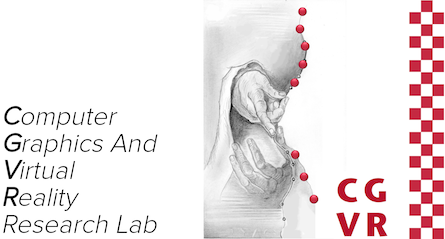
About The Project
MUSC is a bachelor project of CGVR at the University of Bremen that took place in the summer of 2023. It is an extension of the VaMeX project in which CGVR is involved. The project focuses on exploring the Valles Marineres on Mars. MUSC is an application developed using Unreal Engine 5.2, designed to offer a virtual environment for testing future space missions. The application can be utilized both in virtual reality (VR) and non-VR modes, providing a range of features for conducting scientific experiments in the future. We have provided the option to conduct tests individually, join a listen server, or connect to a dedicated server located at the University of Bremen. Up to 15+ users can interact on the Melas Chasma map, a part of Valles Marineris.

With a size of ~69km² Melas Chasma has been recreated based on the original heightmap satellite scans from NASA, featuring a level of detail that accurately represents the terrain with nearly 1-meter precision. The terrain is enriched with a lifelike landscape, including rocks, boulders, an atmospheric setting, and fog, to create a realistic environment. To enhance the authenticity, dynamic dust devils and sandstorms, as well as a day-night cycle, have been implemented to simulate various scenarios. Additionally, various testing tools are included, along with a shooting device that generates dust devils or sandstorms in the VR environment. An interface device to spawn the Marsrover UGV, Ingenuity UAV, or the Humanoide Charlie is also available for map exploration. The interface can display the map, allowing users to select an area for solo or group teleportation. Spawnpoints named Alpha, Beta, or Charlie are marked on the map to provide better orientation. Immersive feedback is provided through footprints and diverse sounds. The astronaut, as well as all integrated tools, are fully modeled, textured, and rigged by our team. Customizable features, including facial appearance, suit color, and organization patches with suit accent colors, have been incorporated for enhanced individualization.
Project Elements
Features
The application provides many options that may be used while in VR, or non VR.
- Customizable Avatars
- Teleportation
- Tools
- Weather
- An Interactive Map
- And more
You want to see it with your own eyes? Watch the Video
Stable Multi-User

Finishing the project a dedicated server is accessible from anywhere in the world. Multiple people may join at the same time and use the projects features, communicate via a Text-Chat and immerse in the Marsian enviroment. To run the Programm and join the server, one requires a PC with at least 5GB of RAM.
Weather and Immersion
In order to create an immersive enviroment Dust-Devils as well as Sand-Storms spawn randomly at random locations on the Map. To guarantee an all around experience, it was also decided to add sounds, although unrealistic.

User-Interface

Ingame each User is provided with a menu with various options to chose from. Implemented functions are teleportation, spawning of drones, changing graphics-settings, adjusting the volume and leaving the game.
Tools
The User has the option to spawn several tools. One of them, the Multi Tool, is used to spawn Dust-Devils and Sand Storms on projectile Impact.

Rover

There are 3 Rovers that can be spawned via the tablet in VR or the GUI. Currently they do not posses any capabilities besides sharing their camera with the User. There are three types, one based on Preseverance, Ingenuity and one Humanoid, named Charlie, that is planned to be used in the future. The User can manage them via the User-Interface
The Team

- Dario Aberle Sandstorms, Enviroment, Testing, Manual Weather Spawning, Dynamic Weather Spawning, Sound
- Ruven Bellmann Stable Multi-User, Teleportation, VR-Pawn, Modelling, Project Video, Debugging, Performance
- Nikolaos Dhimitri Dust-Devils, Enviroment, Testing, Manual Weather Spawning, Dynamic Weather Spawning
- Emrehan Yunus Kaya Stable Multi-User, Teleportation, User-Interfaces, Drones, Server, Lighting
- Leonard Kiefner Stable Multi-User, Teleportation, Export Hightmap into Mesh, Traces on Surface
- Maik Osowski Lighting, Lobby, Map, Modelling, Debugging, Website, Performance, Project Organisation, VR/ Non-VR, User-Interfaces
- Clemens Ressel Stable Multi-User, VR/ Non-VR, Server, Website
- Jessica Röll Lighting, Lobby, Map, Modelling, Debugging, Performance, Project Organisation, VR/ Non-VR, User-Interfaces
- Tom Spradau Debugging, Lighting, Project Organisation, Pawn/ VR-Pawn, Tools, Performance, Project Days: Presentation, Synergy Documentation, User-Interfaces, VR/ Non-VR, Lobby
- Gordon Suhr Drones, Git, Stable Multi-User, User-Interfaces, Teleportation, Teleport-UI, VR/Non-VR,
- Bennet Tast Dynamic Weather, Merge Testing, Performance, Project Organisation, Short Teleportation, Stable Multi-User, Testing, User-Interfaces, Website
- Shidan Wen Drones, Stable Multi-User, VR-Non-VR, User-Interfaces, Sound
- Yuxin Zhao Drones, Stable Multi-User, Server, User-Interfaces, Sound
License
This original work is copyright by University of Bremen.
Any software of this work is covered by the European Union Public Licence v1.2. To view a copy of this license, visit eur-lex.europa.eu.
Any other assets (3D models, movies, documents, etc.) are covered by the Creative Commons Attribution-NonCommercial-ShareAlike 4.0 International License. To view a copy of this license, visit creativecommons.org.
If you use any of the assets or software to produce a publication, then you must give credit and put a reference in your publication.
If you would like to use our software in proprietary software, you can obtain an exception from the above license (aka. dual licensing). Please contact zach at cs.uni-bremen dot de.

